Australia/04 agosto 2016/Fuente: El Comercio
La embajadora de Australia para mujeres y niñas, Natasha Stott Despoja, visitó el Perú para participar del Foro APEC Economía y la Mujer (WEF), una de las reuniones previas a la cumbre APEC que se celebrará en Perú país el 19 y 20 de noviembre.
Entre 1995 y el 2008 fue la mujer más jóven en llegar al Parlamento australiano con solo 26 años, ha colaborado en más de ocho libros y cuenta con innumerables publicaciones en medios de comunicación. Es la segunda persona en ocupar el cargo tras suceder a la diplomática Penny Williams y lo hará hasta finales de este año.
«En los últimos dos años y medio he conocido más de 28 países -un poco agotador- es el turno de otra persona», nos dice.
— Sus artículos giran en torno al feminismo y la igualdad de género, ¿siempre tuvo tanto interés por esos temas?
Efectivamente, la igualdad de género ha sido una pasión de toda mi vida. Fui criada por una madre soltera que me dijo desde pequeña que debo luchar por los derechos de la igualdad, los derechos humanos en general. Lo hice como parlamentaria pero hay innumerables formas de luchar por los derechos de las mujeres y hombres, empoderar nuestro ambiente, hacer la educación más accesible. El feminismo es una parte muy importante de mi trabajo pero es, en realidad, parte de una gran lucha por la igualdad de ambos géneros.
— ¿Cuál es el factor más importante para conseguir dicha igualdad?
La educación. Es la forma con la que podemos garantizar que hombres y mujeres tendrán las mismas oportunidades en la vida. Particularmente en el caso de mujeres, porque mi cargo está orientado a esa población, quiero asegurarme de que lograrán ser educadas porque eso permitirá una mejor salud, mejor estilo de vida, mejor oportunidades laborales, mayores ingresos. Todas esas oportunidades están garantizadas por una buena educación. Actualmente hay más de 65 millones de niñas en el mundo que deberían estar yendo a la escuela y no lo hacen, también sucede con los niños pero no en la misma escala.
— Su cargo no existe en nuestro país. ¿Qué funciones cumple?
Mis funciones están enfocadas en tres áreas: alentar la participación de las mujeres como líderes, apoyarlas en el empoderamiento económico y reducir o eliminar la violencia contra mujeres y niñas. Este último punto incluye violencia doméstica o familiar, violencia en la comunidad y proteger a las mujeres en ambientes conflictivos. Geográficamente trabajo junto a los países del Pacífico y miembros de APEC realizando conferencias, reuniones y visitas bilaterales para aportar con nuestra experiencia en países como el Perú [mediante el Programa de Ayuda Directa que maneja la Embajada de Australia]. Los dos días que estuve aquí fueron muy enriquecedores para ver el apoyo que le da nuestro gobierno a centros peruanos.
— ¿Centros como cuáles?
Como el Centro Ann Sullivan, que apoya a la comunidad con habilidades diferentes; o un refugio para mujeres y niños que huyen de la violencia doméstica.
— ¿Por qué es tan importante para un gobierno tener relaciones con otros países sobre este tema?
Cerca del 35% de mujeres en el mundo han sufrido de violencia sexual o física de algún tipo, es mayor en países como Papúa Nueva Guinea donde alcanza al 90% de mujeres. En Australia, una de cada tres mujeres ha experimentado alguna forma de violencia. La violencia de género es un problema global, una pandemia que afecta a todos los países. Cuando revisamos las cifras vemos que ningún país en el mundo ha logrado la igualdad de género. Así que solo podemos aprender el uno del otro, compartir historias, experiencias y políticas para combatirlo. Es un tema crítico, por ello los gobiernos deben jugar un rol fundamental introduciendo políticas para proteger a las mujeres y educar a la gente. Estoy muy orgullosa del papel de líder que está cumpliendo Australia, particularmente en la prevención de violencia contra mujeres y niñas, pero también es importante oír lo que pasa en otras naciones.
— El área del Pacífico tiene varias ideas en común en temas de negocios pero no sucede lo mismo en cuanto a derechos. ¿Cuán difícil es lidiar con eso?
Tienes razón. El área es muy diversa, los países, culturas y sus historias son muy diferentes. Pero eso es muy emocionante para este trabajo. Por ejemplo, cuando trabajo con países del océano Índico, piensa en la variedad: Malasia, Yemen, Mauricio, Madagascar, Sudáfrica, Indonesia y Australia, entre otros. Todos tenemos diferentes mentalidades e ideas pero perseguimos un mismo objetivo, el cual es garantizar la participación económica de las mujeres y fortalecer sus derechos. No se trata de gobiernos, economías o países superiores a otros sino que trabajan como un equipo.
— Pero igual debe haber retos…
Te sorprenderías. La mayoría de personas normales están emocionadas de ver un movimiento global. Algunas veces nos olvidamos que somos muy parecidos, en realidad enfrentamos al mismo problema pero expresado de diferentes formas: colonialismo, pobreza y muchísimos más. Pero, el punto es que tenemos más en común que en contra. Yo me he sorprendido por el número de gobiernos que se han sumado a la consigna y cuántos han creado oficinas similares. Eso es importante porque estos temas se deben discutir al más alto nivel diplomático.
— En Australia cuentan con el “Plan de Concilio Nacional para reducir la violencia contra mujeres y niños 2009 – 2021”. ¿En qué consiste?
Es un plan que ha sido apoyado por varias gestiones, a pesar de sus diferentes afiliaciones políticas. Fue implementado por el partido Liberal [del Primer Ministro John Howard] y apoyado por el actual gobierno de coalición. Es una guía para eliminar o por lo menos reducir la violencia contra las mujeres y sus niños. Cuenta con soporte legal, psicosocial, médico, refugios y albergues para esas mujeres y lo que considero lo más importante es la prevención. La llamamos prevención primaria, es un área que recién se está explorando en el mundo y estoy muy orgullosa de que Australia fuese el primer país –hasta donde sé– de introducirlo como parte de un Plan Nacional. Para conseguir la igualdad debemos trabajar con la prevención.
— Janet Yellen, presidenta de la Reserva Federal de EE.UU.; Angela Merkel, canciller alemana; Margaret Thatcher, ex premier británica; todas influyentes pero con un perfil muy duro. ¿Ese es el perfil que necesitan las mujeres para destacar en estos tiempos?
Creo que hay dos cosas importantes ahí. El primero, necesitamos más ejemplos a seguir. Mi hija era pequeña cuando Julia Gillard ocupaba el cargo de primer ministro en Australia, cuando su gestión acabó mi hija estaba sorprendida porque me dijo: “No sabía que los chicos podían ser primer ministro”. Debemos asegurarnos de que la gente se acostumbre a eso, a ver mujeres en el poder de todo tipo: económico, político, social, mediáticos. El segundo punto es que no se puede limitar a un perfil o estereotipo, las mujeres somos homogéneas y tienes razón vemos a esas maravillosas mujeres ocupando esos cargos pero no son los únicos perfiles.
— Mundo El Comercio (@Mundo_ECpe)
— ¿Es como si las circunstancias las obligaran a lucir así?
En la política se espera que una mujer sea el doble de buena y el doble de dura. Es una política anticuada pero estoy segura que pasa en todo el mundo. Aún no hemos visto a una presidenta de los EE.UU., una secretaria general de la ONU y Australia solo ha tenido una primer ministro, así que ahí están los siguientes retos.
— ¿Cuál fue el mayor objetivo que consiguió como embajadora?
Cada vez que vi que las políticas que implementábamos cambiaban y salvaban vidas. La prevención de la violencia y el trabajo con las sobrevivientes de violencia que ahora están seguras en refugios y solo se necesitó un pequeño apoyo gubernamental. Otra cosa que me enorgullece, y mucho, es que el 80% de inversiones para asuntos exteriores del gobierno estuvieron destinadas a hechos que afecten el tema de igualdad de género, apoyamos proyectos que luchen contra eso y me enorgullece mucho decirlo.
Fuente: http://elcomercio.pe/mundo/actualidad/ningun-pais-mundo-ha-logrado-igualdad-genero-noticia-1921436

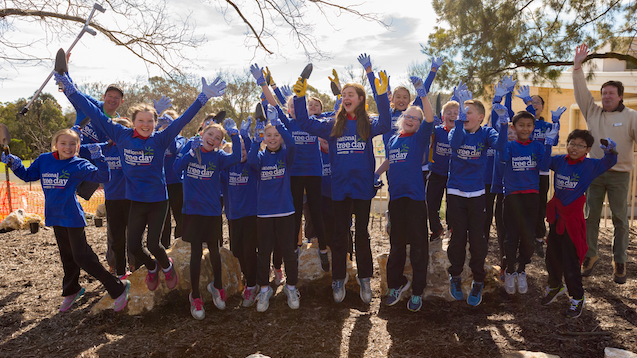


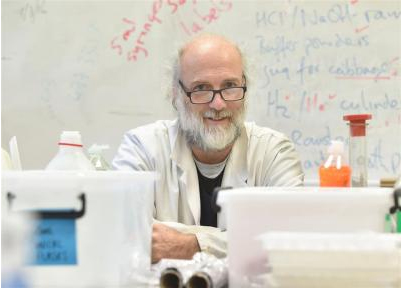
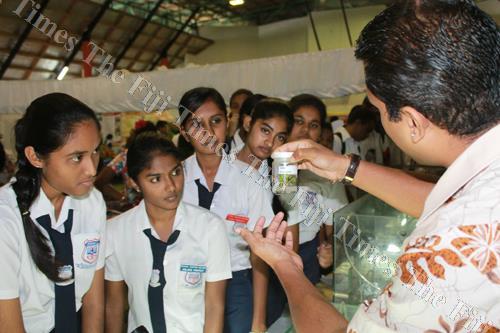

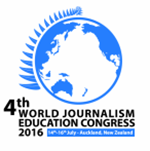
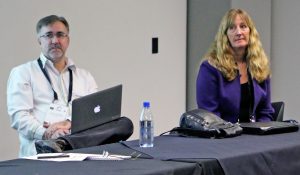







 Users Today : 77
Users Today : 77 Total Users : 35460208
Total Users : 35460208 Views Today : 111
Views Today : 111 Total views : 3418894
Total views : 3418894